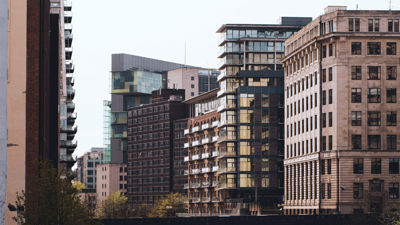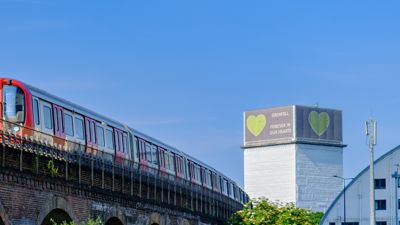
It is hard to believe this is already the fifth anniversary of the terrible fire at Grenfell, when 72 people lost their lives. The enquiry has heard testimonies from survivors that are utterly heart-breaking and we remember that for every life lost, more have been shattered most awfully. I struggle to find words befitting the pain and suffering and I am not sure there are any that truly can.
Today, on the fifth anniversary, we will all remember those who were lost and those suffering still. If there is one thing we can do, it is to try and respect them in at least making sure such a tragedy will never happen again.
To gain understanding, the Grenfell inquiry, led by retired judge Sir Martin Moore-Bick, commenced in September 2017. Held in two phases, the first phase looked at the night of the blaze and the response of the London Fire Brigade.
The second phase has examined the regulatory failings that lined the pathway to the tragedy and are expected to conclude this autumn. However, Sir Martin’s report is unlikely to be published until late 2023 or even early 2024.
Of course, the suffering goes wider than victims, survivors and their circles of family and friends. Thousands of people are still living in blocks that are considered unsafe, their lives often on hold, unable to sell, move, have children. Many also face financial hardship, some even ruin, for buying a bad building in good faith. This mess is not their fault.
While the majority of blocks with Grenfell-type ACM cladding are remediated or well on the way, it is the opposite for the majority of blocks with other unsafe wall systems and other safety failures. There is a very long way to go. Fires happen but relatively few spread from one flat to another. Some fires do, however, and we have seen frightening scenes at the Bolton Cube, the Barking BBQ balconies and Worcester Park - all buildings under 18m. Thankfully, no one died in those fires but it is surely a matter of good fortune that fatalities did not occur. Hopefully, the combination of things going wrong at Grenfell won’t be repeated on the same scale and fatalities may be fewer, but the risk has not gone away, and we need to get buildings fixed fast.
Property managers need to get their heads and their business operations around the new Fire Safety Act and Building Safety Act. In practical reality, this may often mean quite simple changes to what we do, though the fire door checking is going to be a meaningful task. Within the next few weeks, we are issuing new guidance drafted under the careful watch of the Hampshire Fire Authority (TPI / ARMA’s Primary Authority Partner), to support property managers. That guidance will be updated regularly as Government conclude consultations this summer and autumn into the Golden Thread, Safety Case file and Resident Engagement Strategy. As soon as we know, you will know, via our monthly updates and bulletins. Stay tuned.
One concern is the removal of the Building Safety Manager role. It didn’t make much sense to mandate in legislation the absolute requirement to always have one, and leaseholder groups rightly pointed out the expense of the BSM role. But removal of the role from the Act somehow seems to have landed as ‘you don’t need to do that stuff anymore’, and that’s not right. Someone will need to carry out the functions to ensure safety and that will often end up being property managers. Over 3 years ago, I stood on stage at the 2019 IRPM Annual Seminar and wondered if “we are all building safety managers now… lower case b s m.” In fairness, we are doing a great deal of that work already – getting risk assessments, doing what they tell us, keeping records, etc. But there will be some extra work for sure.
What is new is the Principle Accountable Person/Accountable Person role. Here we see an issue. Some landlords, large or lay RMC directors, will want or need property managers to take over some of the functions of the PAP / AP. These functions include certifying the building to the new Regulator, running a Resident Engagement Strategy, and ensuring safety is managed by a competent person or firm or a combination of providers that between them all add up to a safe system. Managers need to be very careful and very clear what functions and liabilities they take on in these circumstances.
If this all seems daunting, panic not. This is culture change as demanded by Dame Judith Hackitt and when we look back at that fateful night, it seems a reasonable demand. We need to learn some new things and change some of what we do, to better ensure safety. And we need to deliver it in a proportionate way that doesn’t cost leaseholders a ton of money – they are experiencing a huge cost of living crisis along with the rest of us. But above all, we have to be safer.
Your professional body continues to work with Government and stakeholders to make sure the new regulations will be sensible and proportionate and do the job they need to. You will be supported all the way and we will look back on this in a few years and feel proud that we raised our game and did our bit to save lives. We will all know where we stand in keeping people safe in their beds, and we will have the systems in place so that we can sleep soundly in ours. That is the journey we are on, and we will get there together.


